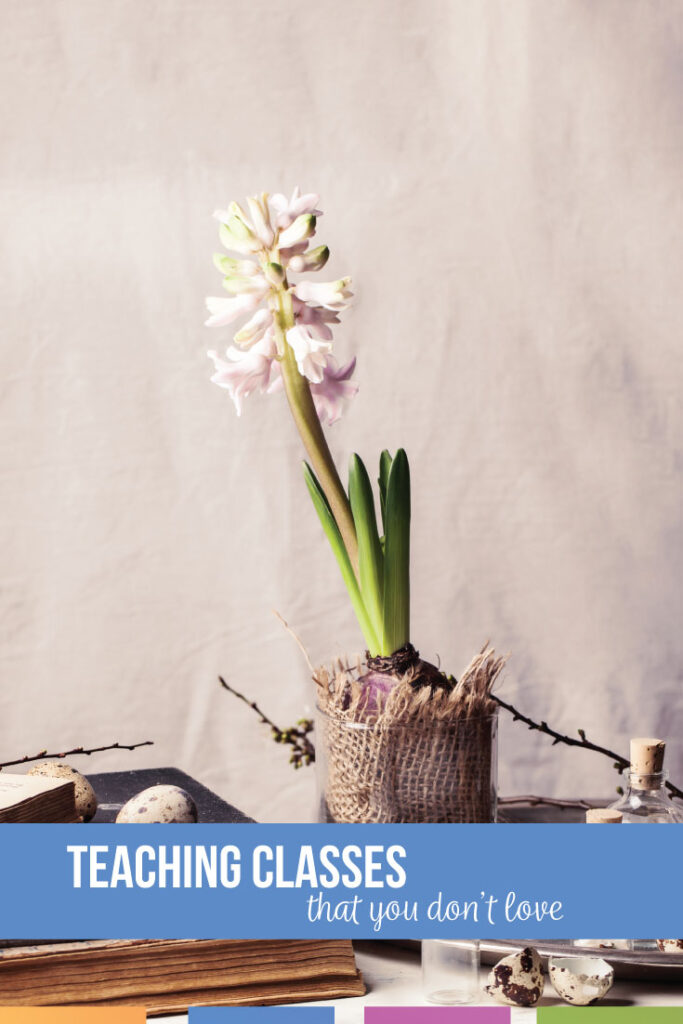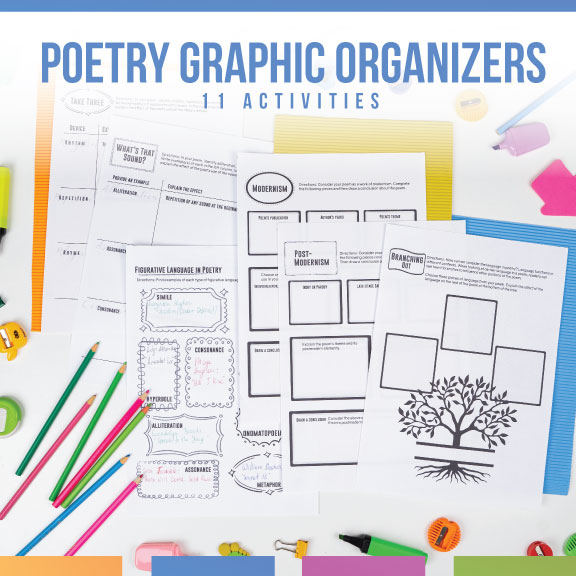Teaching subjects you dislike? I feel you. Here is what I do.
April is National Poetry Month. If I were not an English teacher, I wouldn’t know this because I’m not a fan of poetry.
I possess an appreciation of poetry and understand its contribution to the written word. My students find meaning in poetry and write their own. Reading it in my spare time? Rarely happens. It’s simply not my favorite part of any ELA curriculum because poetry does not speak to me they way literature and speeches do.
I teach it though, and I’m determined to teach it the best possible way. That means I’ve adapted and taught other skills with poetry in my classes. I thought it might help to share what to do when you have to teach a subject you don’t like. (It will probably happen at some point.)
Does teaching subjects you dislike make you a bad teacher?
We teachers are human. Our specialities contain complex pieces. Naturally, the combination leads to not adoring every part of our subject matter. With authenticity and purpose, teaching subjects you dislike can make you a stronger teacher.

Here are four concepts that work for me while teaching poetry—something I don’t particularly love.
1. Be honest with students.
I encourage students to have opinions about characters and plots. (And in memorable literature, we are really supposed to hate some of the characters. Tom Buchanan comes to mind.) Some students dislike reading plays. Others wish nonfiction sometimes had more a story. That’s good—an opinion is better than no thought at all.
My students are normally shocked when I tell them that we’re going to read/write poetry, but this is not my favorite unit. (It’s the same look they give me if I tell them I don’t know something, and I’ll get back to them later.) This authenticity lets them know I am a person and builds trust with them. With classes that truly appreciate this, our discussions are more open as the year continues.
Better teacher.
My teaching of language arts is stronger because much effort goes into poetry lessons. My lessons do connect with students because they see the beauty in poetry and understand poetic devices.
2. Model encouraging behavior.
Who likes everything they do for work or in life? No one! Still, bills must be paid, the dishwasher unloaded, and sit-ups done.
I’m not great at writing poetry, but I write along with my students. I create, brainstorm, and make mistakes. I model for them that even though this is not my preferred mode of expression, I’m going to try, to do my best. That’s what I expect from them, and I want to model the same behavior.
3. Learn along with your students.
My classes and I are going to cover poetry, whether that be through figurative language or meter. Since I do have an appreciation of poetry, I remind students of that. It’s important to show them that distinction – that you may not personally care for something but understand its importance.
When studying and teaching, I’m sure to remark on interesting ideas, a pretty phrase, an image a piece of poetry gave me. I should learn along with my students and show them that learning happens even for grownups.
This learning—maybe I’ll like poetry more some day. Maybe I’ll teach myself into loving it.
Connections.
Since poetry is not my easiest school subject, I connect poems to social studies and history classes. How do poems show social justice? Can learners see their experiences in poetry?
4. Teach it throughout the year.
My first years teaching I had definitive units, probably because of inexperience and a need to map out the year. I had a poetry unit which I no longer teach as a stand-alone. I now incorporate those pieces into reading and writing lessons.
When I teach the “The Masque of the Red Death” we study “The Raven.” When I teach A Raisin in the Sun, Hughe’s “April Rain Song” and “A Dream Deferred” accompany it.
These four concepts help me cover poetry.
Google Scholar and databases.
A particular subject might trip you up, or you might feel that you need extra help in an area. Even the best teacher discovers resources to enhance learning, for progressing lesson plans. The big picture of language arts is huge, and you should not feel bad that you find scholarly resources to help you analyze a poem or diagram a sentence.
Look for quality resources on the Internet. My default is Google Scholar, but most high schools subscribe to a database. We cannot know or love everything!
I get lots of assumptions about English teachers: that they will correct everyone’s grammar, that they correct people’s writing for fun, and that they love any written word. None of those are true of me. When someone asks me what my favorite poem of all time is and I tell them “nothing,” the person normally wrinkles her brow. I get it.
April is National Poetry Month and I know I’m in the minority of English teachers: I don’t care for poetry. These are adaptations I’ve made so that I can teach poetry the best I can. I can (and hope you can too!) apply these ideas when I have teaching subjects I dislike. So, to my readers… what do you do when you teaching subjects you dislike? What tips would you add?


